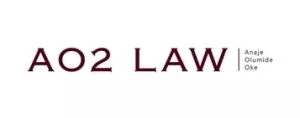On Monday the 22nd of July 2019 news broke that one Mr. Precious Owolabi, a youth corps member serving at Channels Television News in Abuja, was shot while reporting the clash between the Nigerian Police Force ("NPF") and members of the Islamic Movement in Nigeria ("IMN").
The news spurred further outrage when it was reported that Mr. Owolabi was allegedly rejected by the various hospitals where he was taken to for treatment of his gunshot wounds, which unfortunately led to his untimely and preventable death. This devastating new has once more brought to the fore, the applicability of the provisions of Compulsory Treatment and Care for Victims of Gunshot Act 2017 ("the Act") in the circumstance as the law that regulates situations of this nature. The Act provides for the compulsory treatment and care for victims of gunshots by hospitals in Nigeria and goes further to impose on every citizen, a civic duty to render every possible assistance to any person with gunshot wounds by ensuring that the person is taken to the nearest hospital for immediate treatment.
We shall, in the succeeding paragraphs embark on a brief exposition of the provisions of the Act.
An Appraisal of the Act
There are sixteen (16) sections in the Act and the following are notable among them:
- Every hospital is to receive and treat victims of gunshot wounds with or without police clearance and/or payment of an initial deposit, but are duty bound to report to the nearest police station within two hours of commencing treatment on the victim1.
- No person with a gunshot wound shall be subjected to torture or any inhuman or degrading treatment by any person or authority including the police or any security agency2.This provision reaffirms the constitutional right of every citizen to dignity of human person3.
- The police may only receive a gunshot victim upon certification of fitness by the Chief Medical Director of the hospital where he is receiving treatment4.
- The High Court of a State or the FCT may in deserving cases order a person convicted under the Act in addition to other penalties, to pay damages to the victim as restitution for injuries or loss sustained by the victim and such order is enforceable by the victim or by the prosecutor on behalf of the victim5.
- Every hospital is to keep an adequate record of the treatment of bullet wound victims6.
- A hospital that receives any gunshot victim is required to notify the family members or relations of the victim as far as they may ascertain within 24 hours of becoming aware of the victim's identity.
- Any authority or person,who se omission results in the unnecessary death of a gunshot victim shall be liable to imprisonment for 5 years or a finein the sum of N 500,000.00 or both7.
- Any person who commits an offence under the Act especially, when the offence does not lead to death of victim but led to substantial physical, mental, emotional and psychological damage, shall be liable on conviction to imprisonment for a term of not more than 15 years and not less than 5 years without the option of fine.
- Where an offence (under the Act) is committed by a corporate body, the corporate head shall be prosecuted8.
Our Concluding Thoughts
The above provisions are quite commendable, given the hitherto position where our hospitals were noted for refusing to attend to gunshot victims without a police clearance and/or initial monetary deposit which resulted in a lot of lives being lost. Far reaching and laudable as the provisions of the Act are, it is imperative to note that citizens who the law is meant to protect may not be able to take maximum benefits of same unless those shouldered with the responsibility of enforcing the law are alive to their various responsibilities.
We therefore recommend that various sensitization programs be conducted by the Governments at all levels throughout the country through the appropriate information dissemination agencies, such that citizens are informed of their various rights and obligations under the Act. We also urge the relevant enforcement agencies like the NPF to be more proactive in ensuring that the provisions of the Act are strictly complied with.
It is our considered opinion that the enactment of the Act is a step in the right direction as it would see our hospitals become more responsive in attending to gunshot victims so as not to attract any punishment under the Act.
Footnotes
1 Sections 1,2 and 3 of the Act. Interestingly, under the Robbery and Firearms Act as well as the Police Act, there is no mention of the police report as a requirement, before a gunshot victim may be attended to at a Nigerian Hospital. Therefore, we do not see the basis for this previous requirement.
2 2(2) of the Act
3 Section 34 of the 1999 Constitution of the Federal Public of Nigeria (as amended)
4 Section 4 of the Act
5 Section 14 of the Act
6 Section 12 of the Act
7 Section 11 of the Act
8 Section 13 of the Act
The content of this article is intended to provide a general guide to the subject matter. Specialist advice should be sought about your specific circumstances.


